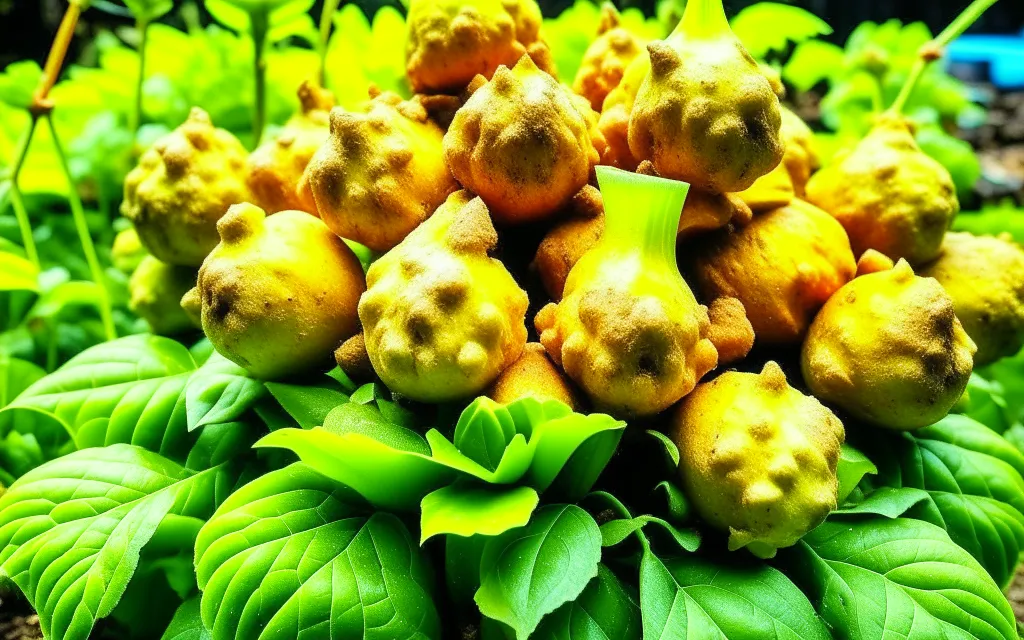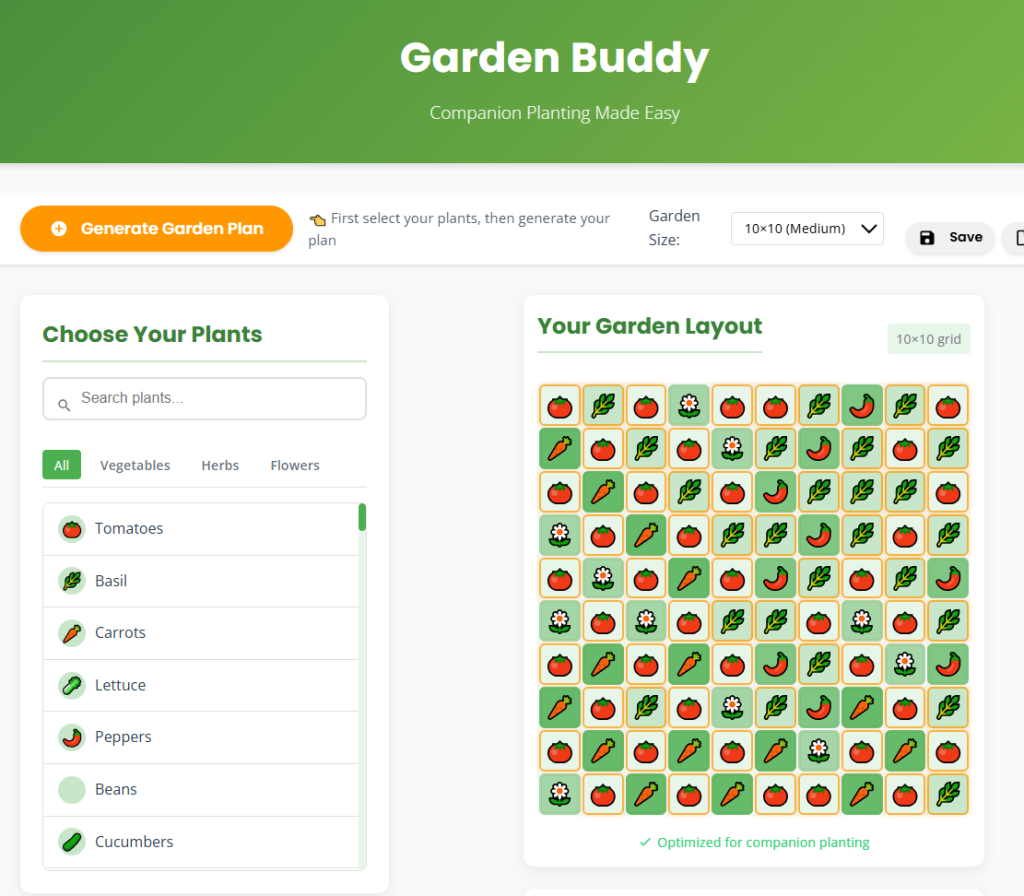
Growing Jerusalem Artichokes: A Gardener’s Delight
Hey there, fellow garden enthusiasts! If you’ve ever wandered through a farmer’s market or a gourmet grocery store, you’ve probably seen jars of Jerusalem Artichokes, also known as sunchokes, sitting pretty. These little tubers have a nutty flavor and can be quite versatile in the kitchen. But did you know they’re also easier to grow than you might think? Today, let’s dive into the wonderful world of Jerusalem Artichokes together.
What Are Jerusalem Artichokes?
First off, Jerusalem Artichokes aren’t from Jerusalem, nor are they artichokes! These quirky tubers come from a variety of sunflower, Helianthus tuberosus, with vibrant yellow flowers that can brighten up your garden. They’re typically planted in spring after the last frost and thrive in well-drained soil with plenty of sunlight. They’re quite forgiving—if you forget to water them once in a while, they still tend to pull through.
A Brief History
The history of Jerusalem Artichokes is as rich as their flavor. Native American tribes were using them long before European settlers arrived, enjoying their nutritional benefits. They were essentially ‘forgotten’ for a time but have seen a resurgence in interest due to their versatility and earthy taste.
Growing Techniques
You can grow these beauties in various ways, depending on your garden space. If you’re short on ground space, why not try vertical gardening? Planting them in large containers or raised beds will yield amazing results, and it makes harvesting a breeze. You can even plant them alongside larger plants to create more layers in your garden. Plus, they can be quite an attractive addition!
Varieties of Jerusalem Artichokes
When it comes to varieties, there’s quite a selection to choose from! The ‘White Fuseau’ is a popular choice for its creamy texture, while ‘Purple Stargazer’ is known for its striking color and slightly sweeter taste. Each variety has its characteristics, so don’t shy away from experimenting to find your favorite!
The Benefits of Companion Planting for Jerusalem Artichokes
Now, let’s talk about companion planting—it’s like throwing a garden party where everyone gets along. Companion planting has many advantages for your Jerusalem Artichokes. It can enhance growth, improve yields, and even help control pests. When you pair the right plants, you create a happy little ecosystem in your garden. Isn’t that exciting?
What Are Good Companion Plants for Jerusalem Artichokes?
So, you might be wondering, “What should I plant alongside my Jerusalem Artichokes?” Well, let me introduce you to a couple of fantastic companions: Sunflowers and Corn.
1. Sunflowers
Sunflowers are not just pretty—these majestic giants can actually help your Jerusalem Artichokes grow better! They attract pollinators and beneficial insects while offering some shade during hot summer days, which can be a lifesaver for those tubers. Additionally, sunflowers have deep roots that can help break up the soil, promoting aeration and nutrient access for your artichokes. Just be careful with spacing; keeping them at least 2 to 3 feet away will ensure they don’t compete for nutrients.
2. Corn
Corn is another excellent companion. Tall stalks provide a natural trellis for your Jerusalem Artichokes, and both plants enjoy similar growing conditions. The height of corn offers some protection against the wind, creating a stable environment for your tubers. Just remember to plant them at least 18 to 24 inches apart for optimal growth!
Plants to Avoid
Now, let’s not forget the party crashers. One plant to steer clear of when growing Jerusalem Artichokes is the humble tomato. While it may be tempting to combine your favorites, tomatoes can compete for nutrients and harbor diseases that may harm your artichokes. Ideally, keep tomatoes at least 3 to 4 feet away from your Jerusalem Artichokes and any of their companions.
Wrapping It Up
Growing Jerusalem Artichokes can be a rewarding endeavor, and choosing the right companions like sunflowers and corn makes the whole experience more beneficial. Remember to give them space, and avoid combining them with tomatoes to ensure a thriving garden. So, why not give Jerusalem Artichokes a go? You’ll be rewarded with not only a great harvest but also a vibrant garden that’s bursting with life!
Happy gardening, friends! I can’t wait to hear about all the delicious dishes you create with your homegrown sunchokes!
Planting Guidelines for Companion Plants to Jerusalem Artichokes
Ah, Jerusalem Artichokes! They’re such a delightful addition to any garden. Not only do they produce tasty tubers, but they also have a stunning floral display. One of the best ways to boost your Jerusalem Artichokes’ growth is through companion planting. Today, I’ll share some spacing guidelines for various companion plant categories to ensure that your garden flourishes. Let’s dive right in!
1. General Rule for Spacing Sunflowers and Corn
When it comes to planting sunflowers (Helianthus) and corn (Zea mays) alongside Jerusalem Artichokes, a general rule is to keep a distance of 12 to 18 inches. These plants generally thrive on the same nutrients and can support each other. However, do keep in mind the individual needs of each plant!
2. Tall Companions
For taller companions, like sunflowers or tall corn, I’d recommend spacing them 18 to 24 inches apart from Jerusalem Artichokes. This helps minimize shading and allows sunlight to reach all your plants. Examples include:
3. Low-Growing Companions
When considering low-growing companions, you can get away with planting them 6 to 12 inches from your Jerusalem Artichokes. They won’t compete for height, and this proximity can actually help suppress weeds. Some good options include:
4. Strongly Aromatic Companions
Strongly aromatic plants, like basil or mint, should be spaced 12 to 18 inches apart. Their scents can deter pests while enhancing the flavor of your crops. Consider these:
5. Nutrient-Heavy Feeders
Nutrient-heavy feeders, such as squash and beans, usually require a bit more room. I suggest maintaining a distance of 18 to 24 inches so they can absorb the nutrients needed without overwhelming each other. Examples include:
6. Spreading or Vining Companions
Finally, for spreading or vining companions like cucumbers or melons, I’ve found that a spacing of 24 to 36 inches is ideal. This allows ample room for them to spread out without overshadowing your Jerusalem Artichokes. Some nice choices include:
Final Tip
Always adjust these guidelines according to your specific garden conditions, such as soil quality, light exposure, and moisture. Also, consider the mature sizes of your chosen companion plants. Sometimes a little spacing adjustment can lead to a thriving, harmonious garden!
Companion Plant Overviews
Sunflowers
Sunflowers are excellent companions to a variety of plants. Apart from Jerusalem Artichokes, they work well with:
Corn
Corn is another fabulous companion plant that’s not just great for Jerusalem Artichokes. It’s also compatible with:
So there you have it! By following these spacing guidelines and planting the right companions, you’ll set the stage for a bountiful harvest of Jerusalem Artichokes and their friends. Happy gardening!

Leave a Reply